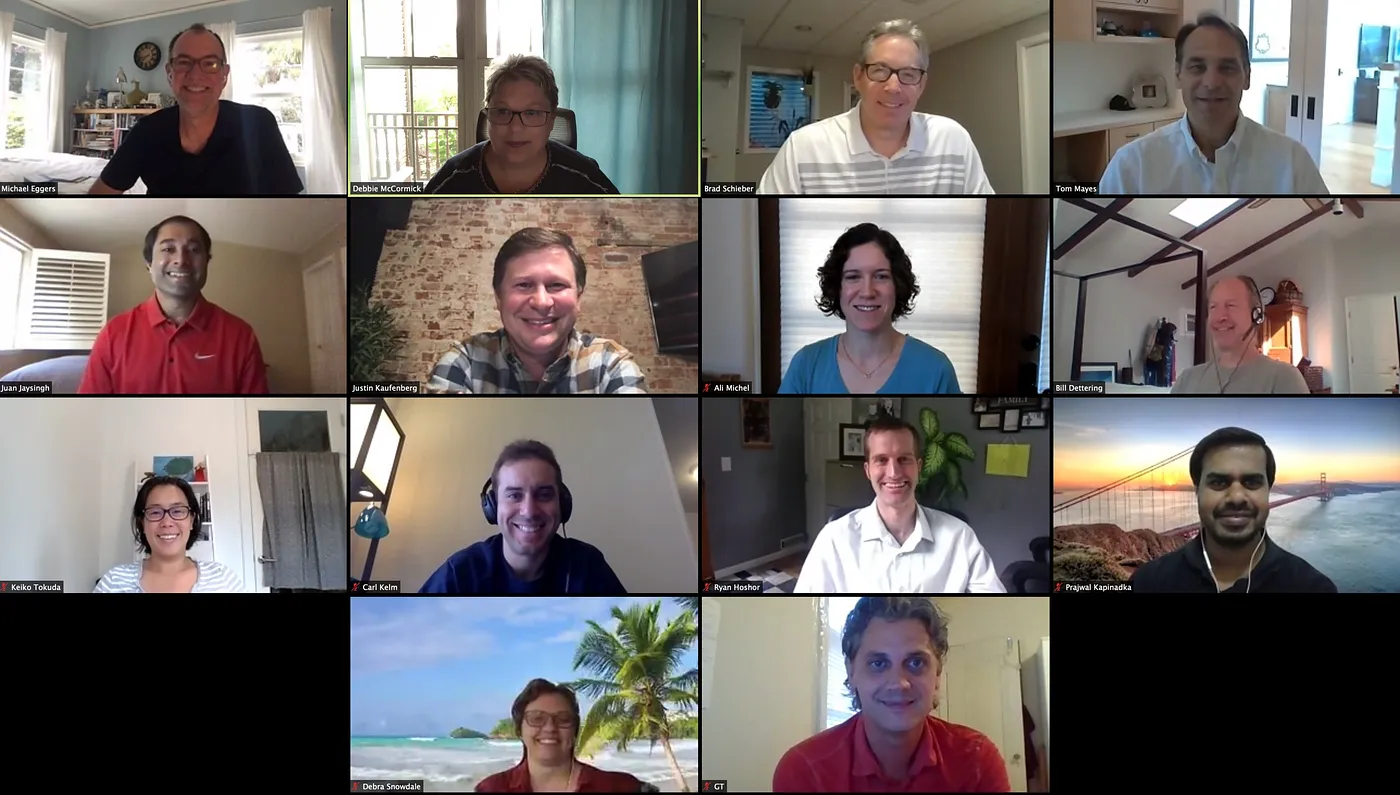Why We Invested: Zingtree
Zingtree’s powerful technology and world-class team make this a unique opportunity. We’re thrilled to welcome them to the Rally portfolio.
Tens of thousands of times a day, customer care teams and contact centers try to help people navigate complex situations — answering insurance questions, scheduling someone with the right physician, fixing a product, etc. Yet those agents typically have to hunt through docs and spreadsheets to find the right information, which leads to errors, slow resolution times and a sub-optimal experience for the customer.
Frontline teams crave better tools to translate complex information into clear actions, which is why we’re excited to announce our recent investment in Zingtree. Their no-code, interactive decision tree software helps teams create dynamic scripts that guide users to the “next best actions.” Whether the user is a customer, an employee or a contractor, Zingtree is the most impressive new intelligent support system tool that we’ve seen in many years.
We were introduced to Zingtree through a Rally Tech Partner who had previously used decision tree software to automate customer response and improve their customer success team rating. Rally Managing Director and Zingree Board Member Justin Kaufenberg also had nearly a decade of personal experience building a similar technology at SportsEngine, because the software simply didn’t exist at the time.
Decision tree/next best action technology, especially when abstracted horizontally, can be industry changing in a number of different verticals. You see this in the Zingtree customer base, which includes numerous Fortune 500 enterprises, most of whom signed up, provisioned the system and completed the integration before Zingtree had even a single sales person.
When we see the largest companies in the world proactively seeking out a technology and feeling so compelled to use it that they move forward with no support or prompting from the company — we take notice and jump at the chance to invest.
Justin recently caught up with Juan Jaysingh, the CEO of Zingtree. Below are edited excerpts from the conversation.
Justin Kaufenberg, Managing Director at Rally Ventures: Have you always wanted to work in early-stage tech?
Juan Jaysingh, CEO of Zingtree: For as long as I can remember, I’ve wanted to do startups because my whole life felt like a startup. I moved to the US from India alone when I was 14 years-old, which was a pivotal time in my life.
I remember the first book I read after I arrived was The Alchemist. So much of it resonated, and it really sparked a belief in me to go after my dreams. I was fortunate to get a scholarship to Georgetown Prep and I eventually became a US citizen. I actually voted for the first time in November.
I have a good set of mentors around me, which I think is important for any founder, and I moved to Silicon Valley on their advice. I then went on to found ZeeMee in 2014, a social media platform for students to tell their stories and connect in college communities.
I know startups are hard and failure could very well be a possibility. That’s both painful and great because if it’s too easy, it’s probably not worth it.
Justin: How did you get introduced to Zingtree?
Juan: I met one of Zingtree’s co-founders, Tom Mayes, on the tennis courts and started hearing about Zingtree a few years ago. Tom and his co-founder, Bill Dettering, were high school classmates many years ago and have been in business together ever since, which is pretty cool.
Zingtree was steadily growing, but they were doing it more as a side hustle. Then, last summer, they came to me and said they thought the company had tremendous potential and asked if I was interested in being the CEO. Their pitch was fairly simple. Just that I had the right experience and that I was someone they trusted. If I also saw it as a big opportunity, they would give me the keys to the kingdom.

Justin: What was it that really excited you about Zingtree?
Juan: The massive potential. There is a real groundswell of market need for this technology. Zingree has already organically acquired major logos like Peloton, AWS and SpaceX. I’ve been in client-facing roles like sales and partnerships before, so I know how hard it is to get major logos as customers.
1–2 multi-billion dollar companies were signing up for Zingtree on their own. These companies had a need, found Zingtree online and put it to good use. I’ve never seen anything like it.
The second thing that attracted me to Zingtree was the challenge. They’ve had amazing success so far, but they’re truly an early-stage startup and there is a lot of work to be done. I want to take what I’ve learned in my career — the successes and the failures — and bring Zingtree to the next level.
Justin: You mention failures in your past. What did you learn from those failures and what are you doing differently now?
Juan: I take learning from past mistakes very seriously in my professional career. For example, when I founded ZeeMee and became a first-time CEO, I got really valuable advice that there is no OTJ training except for me as a first-time CEO, so I needed to surround myself with people who have been there, done that. I understood it but didn’t execute to it, which hurt the company in the end.
What I’ve learned is the CEO is in charge of the bus. If things go well, the whole team made it happen. If things don’t go well, it’s on the CEO because they’re the one driving the bus — making decisions about who gets on, where they’re sitting, how fast we’re going. This time around, I’ve spent a lot of time making sure we have the right people in the right seats.
Justin: I always say building a startup is like building an airplane on the way down. But I like your metaphor, too. I just keep picturing Speed.
One of the reasons we invested in Zingtree is because of the talent. It’s very impressive for the stage. How do you think about building a team?
Juan: The first thing to get right is the culture and values. If you do this right, bringing in a great team is so much easier. My biggest focus as CEO is to create value, and I have direct conversations about this from day one. Once someone gets to know the business, I put it back on them and ask where they think they can provide the most value for our team.
We have the opportunity to go so many places with Zingtree — it can run across industries and departments. It truly is a horizontal platform. We want to find the people who can be strong startup athletes and move fast.
Justin: You mentioned the Alchemist earlier. Do you have any other favorite books?
Juan: I also like Shoe Dog, which is about the Founder of Nike, the sacrifices he made and the hardships he went through. But he never gave up and then went on to build one of the best brands in the world.
Justin: I love the Shoe Dog reference. One of my favorite quotes from that book is the Thomas Jefferson quote, “It is wonderful how much may be done if we are always doing.” That’s something I always appreciated. I’d rather have you make a mistake at 100 miles per hour, but just always be in constant motion.
It’s very valuable to understand the stories of other entrepreneurs. There’s this concept of the 10-year overnight success, but it really is the decade before anyone cares that matters. It all looks easy in the rearview mirror, but in the moment, it’s anything but easy.
Juan: You went through that yourself, right?
Justin: That’s right. We founded SportsEngine 19 years before we sold it. In the end, people assumed that everything happened in the last few years, but it really happened in the lost decade when we were just scratching to survive.
Last question: What character in a book, movie or film do you most relate to and why?
Juan: I would go with Rudy because he was an underdog and had no business playing at Notre Dame, a place with rich history and tradition, which he appreciated. Those things are important in life, and even though I left my history and tradition behind, I remember it often. Rudy persevering with willpower, putting the work in and making all the sacrifices to run through that wall is something I appreciate and aspire to do in my life.



